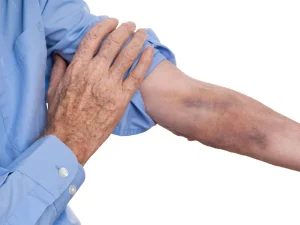
If you are interested in medical detox, contact one of our Vertava Health treatment specialists to find alcohol detox programs near you. If you drink heavily on a regular basis, it can be dangerous to stop alcohol cold turkey. For this reason, you should not suddenly quit drinking without talking to your doctor. The consequences of quitting alcohol cold turkey can be serious and lead to alcohol withdrawal syndrome, which can be fatal in severe cases. When an individual has developed a substance use disorder or dependence on alcohol, stopping its use outright can seem virtually impossible. On top of this, quitting immediately — or “cold turkey” as many users and professionals call it — can be dangerous.
- If you drink heavily, your doctor may recommend quitting with the help of a medical detox center.
- But if you experience these symptoms for more than about five days after stopping or find them particularly troublesome, your GP will be able to offer some advice.
- Unlike inpatient treatment, tapering allows people to maintain their lifestyles while improving their drinking habits.
- Tapering can sometimes help a person avoid uncomfortable and sometimes deadly symptoms of withdrawal.
- Insomnia, anxiety and paranoia — the opposite effects of alcohol — are the expected results.
Find A Rehab Center Near You
Even if you don’t succeed the first time, there are still plenty of treatment options you can turn to. With these things in mind, it’s important to weigh the pros and cons of tapering your alcohol use to make a fully informed decision. If your health, wellness, and even life may be at risk, quitting alcohol should only be attempted with the help of a medical professional.
Let’s talk about your recovery
Although, you’ll need support if you want to successfully and safely taper at home. Talk to your doctor or a drug treatment specialist about what to expect as you experience alcohol withdrawal. Identify a family member or friend who you can call on to provide emotional support. For example, healthcare providers usually don’t take patients off antidepressants suddenly; rather, they gradually lower the dosages to help reduce antidepressant discontinuation symptoms. Whether you’re sober curious, know for sure you’re ready to quit, or fall somewhere in between, Dr. Streem shares advice for how to stop drinking.

Tips for Tapering Yourself off Alcohol
Within just a month of not drinking, your body can begin to reap the benefits. Your liver can start to heal, your risks of heart disease how to taper off alcohol and cancer go down, and you may begin to sleep better. By avoiding alcohol, you’re taking a big step toward improving physical health.
If you are tapering yourself off alcohol for the first time, it can be helpful to know what symptoms to expect during the process. Although the symptoms can vary for each person based on personal factors, many people share common experiences during this process. Substituting a prescription drug for alcohol should only happen with the help of a medical professional. No one should ever attempt a substitution taper with prescription medication unless their doctor specifically prescribed it for that purpose in a medical detox program. Minor symptoms of alcohol withdrawal can start as soon as six hours after the last drink of alcohol.

It teaches you healthy ways to cope with stress and techniques for overcoming the underlying causes of alcohol addiction. Although you can use methods to taper off alcohol at home, the best way to taper is to talk to a doctor. They can monitor your intake and adjust it accordingly to reduce the risk of withdrawal symptoms. Establishing new habits and routines, and dealing with the underlying causes of your drinking habits, are essential to lasting recovery. Alcohol also changes your brain chemistry, which can result in higher levels of anxiety and depression for the first several months. Finally, just because you’ve gotten past the withdrawal phase doesn’t mean you won’t continue to face psychological aspects of addiction—including alcohol cravings and drinking triggers.

- If you or a loved one are struggling with alcohol or other drugs, call us now to speak with a Recovery Advocate.
- The support of medical professionals and psychologists can help you in this process.
- Often, people with alcohol use disorder find that other people in their lives spot their addiction long before they do.
- Because he is a member of a support group that stresses the importance of anonymity at the public level, he does not use his photograph or his real name on this website.
Can Alcohol Addiction be Safely Tapered Off?

